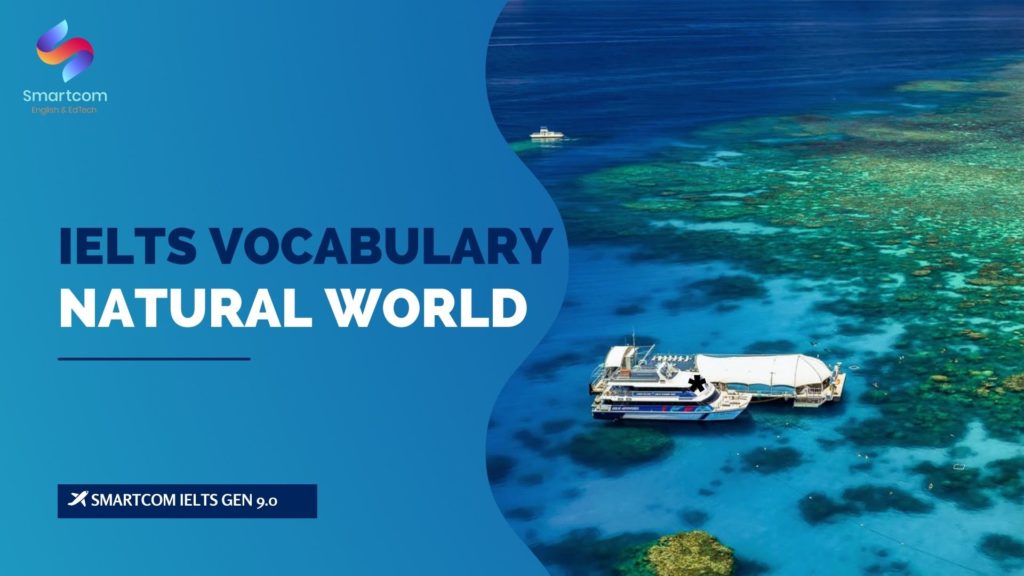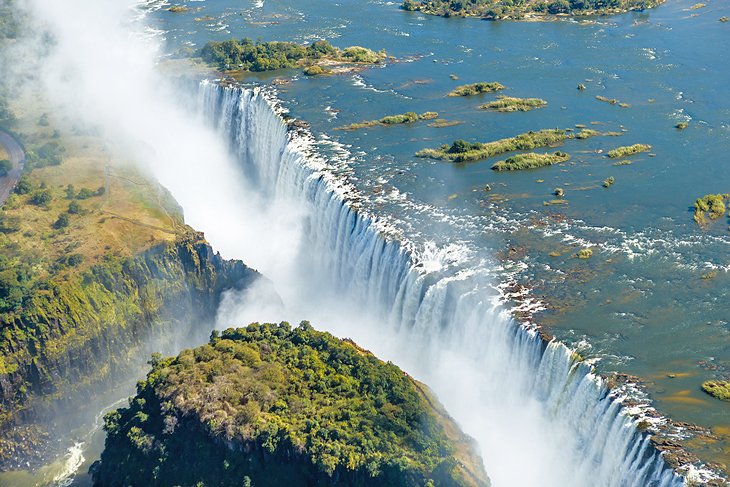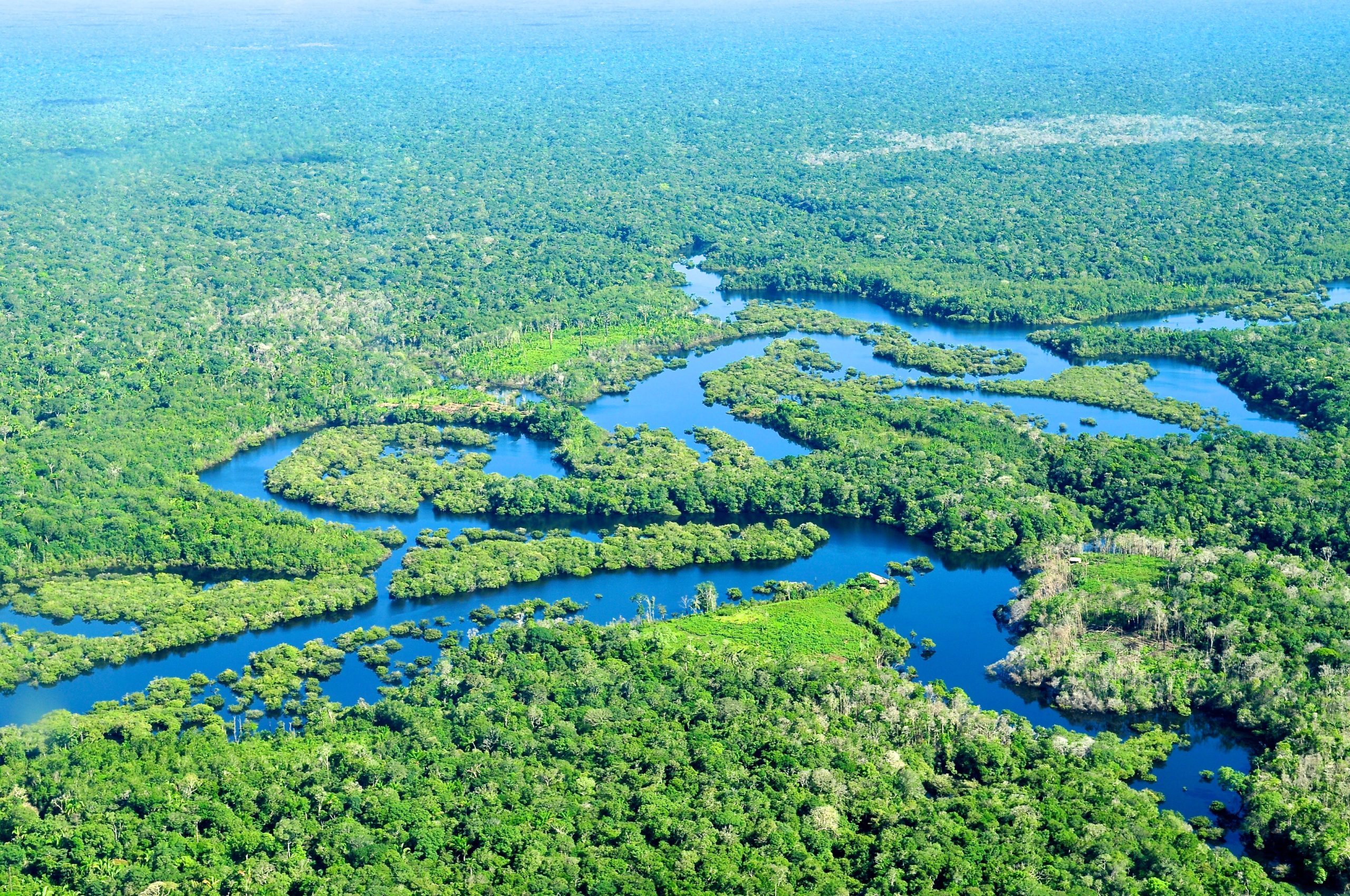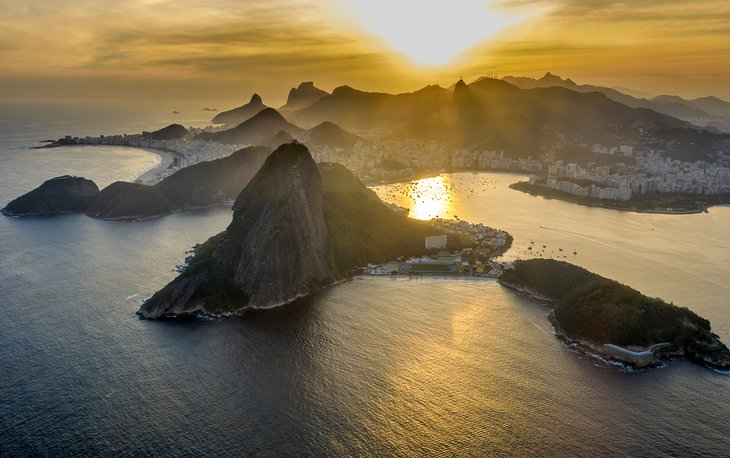Đội ngũ chuyên gia tại Smartcom English là tập hợp những chuyên gia đầu ngành trong lĩnh vực IELTS nói riêng và tiếng Anh nói chung. Với phương pháp giảng dạy sáng tạo, kết hợp với công nghệ AI, chúng tôi mang đến những trải nghiệm học tập độc đáo và hiệu quả. Mục tiêu lớn nhất của Smartcom Team là xây dựng một thế hệ trẻ tự tin, làm chủ ngôn ngữ và sẵn sàng vươn ra thế giới.
Để tiếp tục chuỗi series IELTS Vocabulary, trong bài viết này, Smartcom English sẽ cung cấp cho bạn list 100 Natural World Vocabulary IELTS và một số bài tập từ vựng để bạn thực hành ghi nhớ thêm nhiều từ vựng hay và nâng cao kỹ năng tiếng của bản thân.
>> Xem thêm: https://smartcom.vn/blog/ky-nang-ielts/ielts-vocabulary/

List 100 từ vựng Natural World Vocabulary IELTS
- Atmosphere /ˈæt.mə.sfɪər/ – Khí quyển
- Biodiversity /ˌbaɪ.oʊ.daɪˈvɜː.sə.ti/ – Đa dạng sinh học
- Climate /ˈklaɪ.mət/ – Khí hậu
- Conservation /ˌkɒn.səˈveɪ.ʃən/ – Bảo tồn
- Desertification /dɪˌzɜː.tɪ.fɪˈkeɪ.ʃən/ – Sa mạc hóa
- Ecosystem /ˈiː.kəʊ.sɪs.təm/ – Hệ sinh thái
- Endangered /ɪnˈdeɪn.dʒəd/ – Có nguy cơ tuyệt chủng
- Fauna /ˈfɔː.nə/ – Động vật
- Flora /ˈflɔː.rə/ – Thực vật
- Fossil fuels /ˈfɒs.əl fjuːlz/ – Nhiên liệu hóa thạch
- Greenhouse effect /ˈɡriːn.haʊs ɪˌfekt/ – Hiệu ứng nhà kính
- Habitat /ˈhæb.ɪ.tæt/ – Môi trường sống
- Invasive species /ɪnˈveɪ.sɪv ˈspiː.ʃiːz/ – Loài xâm lấn
- Ozone layer /ˈəʊ.zəʊn ˌleɪ.ər/ – Tầng ozon
- Pollination /ˌpɒl.ɪˈneɪ.ʃən/ – Sự thụ phấn
- Rainforest /ˈreɪn.fɒr.ɪst/ – Rừng mưa
- Soil erosion /sɔɪl ɪˈrəʊ.ʒən/ – Xói mòn đất
- Sustainability /səˌsteɪ.nəˈbɪl.ɪ.ti/ – Bền vững
- Wildlife /ˈwaɪld.laɪf/ – Động vật hoang dã
- Adaptation /ˌæd.æpˈteɪ.ʃən/ – Sự thích nghi
- Arctic /ˈɑːrktɪk/ – Vùng Bắc cực
- Bioaccumulation /ˌbaɪ.oʊ.əˌkjuː.mjʊˈleɪ.ʃən/ – Tích tụ sinh học
- Carbon footprint /ˈkɑːbən ˈfʊtˌprɪnt/ – Dấu chân carbon
- Deforestation /ˌdiːˌfɒrɪˈsteɪ.ʃən/ – Sự phá rừng
- Ecological /ˌiː.kəˈlɒdʒɪkəl/ – Sinh thái học
- Extinction /ɪkˈstɪŋkʃən/ – Sự tuyệt chủng
- Fertile /ˈfɜː.taɪl/ – Phì nhiêu, màu mỡ
- Geology /dʒiˈɒlədʒi/ – Địa chất học
- Hydroelectric /ˌhaɪ.drə.iˈlek.trɪk/ – Thuộc thủy điện
- Ice cap /ˈaɪs kæp/ – Chỏm băng
- Jungle /ˈdʒʌŋɡəl/ – Rừng nhiệt đới
- Keystone species /ˈkiː.stəʊn ˈspiː.ʃiːz/ – Loài chủ chốt
- Marine /məˈriːn/ – Thuộc biển, hàng hải
- Nitrogen cycle /ˈnaɪ.trə.dʒən ˌsaɪ.kəl/ – Chu kỳ nitơ
- Overfishing /ˌəʊ.vəˈfɪʃɪŋ/ – Đánh bắt cá quá mức
- Photosynthesis /ˌfəʊ.təʊˈsɪn.θə.sɪs/ – Quang hợp
- Renewable /rɪˈnjuː.ə.bl/ – Có thể tái tạo
- Savanna /səˈvæn.ə/ – Đồng cỏ
- Temperate /ˈtem.pər.ət/ – Ôn đới
- Ultraviolet /ˌʌl.trəˈvaɪ.ə.lət/ – Tia tử ngoại
- Acid rain /ˈæsɪd reɪn/ – Mưa axit
- Biodiverse /ˌbaɪoʊdɪˈvɜrs/ – Đa dạng sinh học
- Carbon dioxide /ˈkɑrbən daɪˈɑksaɪd/ – Khí carbonic
- Drought /draʊt/ – Hạn hán
- Ecology /ɪˈkɒlədʒi/ – Sinh thái học
- Floodplain /ˈflʌdpleɪn/ – Đồng bằng lũ lụt
- Grassland /ˈɡræslænd/ – Đồng cỏ
- Landfill /ˈlændˌfɪl/ – Bãi chôn lấp
- Mammal /ˈmæml/ – Động vật có vú
- Natural disaster /ˈnætʃərəl ˌdɪˈzæstər/ – Thảm họa tự nhiên
- Oceanography /ˌoʊʃiˈɑnɑɡrəfi/ – Hải dương học
- Permafrost /ˈpɜrməˌfrɔst/ – Tầng đất đóng băng vĩnh cửu
- Rainfall /ˈreɪnˌfɔl/ – Lượng mưa
- Seismology /saɪzˈmɒlədʒi/ – Địa chấn học
- Terrestrial /təˈrɛstriəl/ – Thuộc về trái đất
- Volcanic /vɒlˈkænɪk/ – Thuộc núi lửa
- Wetland /ˈwɛtlænd/ – Vùng đất ngập nước
- Aquatic /əˈkwætɪk/ – Thuộc về nước
- Biodegradable /ˌbaɪoʊdɪˈɡreɪdəbl/ – Có thể phân hủy sinh học
- Climate change /ˈklaɪmət tʃeɪndʒ/ – Biến đổi khí hậu
- Dust storm /dʌst stɔrm/ – Bão cát
- Erosion /ɪˈroʊʒən/ – Xói mòn
- Food chain /fuːd tʃeɪn/ – Chuỗi thức ăn
- Glacier /ˈɡleɪʃər/ – Sông băng
- Hurricane /ˈhɜːrɪkeɪn/ – Bão lốc
- Infrared /ˌɪnfrəˈred/ – Tia hồng ngoại
- Leaching /ˈliːtʃɪŋ/ – Sự rửa trôi
- Mangrove /ˈmæŋɡroʊv/ – Rừng ngập mặn
- Oceanic /oʊʃiˈænɪk/ – Thuộc về đại dương
- Pesticide /ˈpɛstɪsaɪd/ – Thuốc trừ sâu
- Rainwater /ˈreɪnˌwɔːtər/ – Nước mưa
- Soil conservation /sɔɪl ˌkɒnsəˈveɪʃən/ – Bảo vệ đất đai
- Tornado /tɔːˈneɪdoʊ/ – Lốc xoáy
- Water cycle /ˈwɔːtər saɪkl/ – Chu trình nước
- Avalanche /ˈævəlænʃ/ – Lở tuyết
- Coral reef /ˈkɔːrəl riːf/ – Rặng san hô
- Ecological footprint /ˌiːkəˈlɒdʒɪkəl ˈfʊtˌprɪnt/ – Dấu chân sinh thái học
- Forest fire /ˈfɔːrɪst faɪər/ – Cháy rừng
- Habitat destruction /ˈhæbɪtæt dɪˈstrʌkʃən/ – Phá hủy môi trường sống
- Insectivore /ɪnˈsɛktɪvɔːr/ – Động vật ăn côn trùng
- Meteorology /ˌmiːtiəˈrɒlədʒi/ – Khí tượng học
- Mudslide /ˈmʌdslaɪd/ – Lở đất
- Ozone depletion /ˈoʊzoʊn dɪˈpliːʃən/ – Sự suy giảm tầng ozon
- Predator /ˈprɛdətər/ – Động vật săn mồi
- Recycling /ˌriːˈsaɪklɪŋ/ – Tái chế
- Soil degradation /sɔɪl ˌdɛɡrəˈdeɪʃən/ – Sự suy thoái đất
- Tsunami /tsuˈnɑːmi/ – Sóng thần
- Watershed /ˈwɔːtərʃɛd/ – Lưu vực sông
- Aquifer /ˈækwɪfər/ – Tầng nước ngầm
- Carnivore /ˈkɑːrnɪvɔːr/ – Động vật ăn thịt
- Delta /ˈdɛltə/ – Đồng bằng châu thổ
- Estuary /ˈɛstjʊəri/ – Cửa sông
- Geothermal /ˌdʒiːoʊˈθɜːrməl/ – Nhiệt độ nội địa
- Migrate /maɪˈɡreɪt/ – Di cư
- Oasis /oʊˈeɪsɪs/ – Ốc đảo
- Plate tectonics /pleɪt tɛkˈtɒnɪks/ – Biến đổi vỏ trái đất
- Biogeochemical cycles (/ˌbaɪoʊˌdʒiːoʊˈkɛmɪkəl ˈsaɪklz/) – Chu trình sinh hóa địa hóa
- Ecological resilience (/ˌiːkəˈlɒdʒɪkəl rɪˈzɪlɪəns/) – Sự phục hồi sinh thái
- Symbiosis (/ˌsɪmbaɪˈoʊsɪs/) – Mối quan hệ cộng sinh
- Saltwater intrusion /ˈsɔːltwɔːtər ɪnˈtruːʒən/ – Xâm nhập mặn

Từ vựng chung về các vấn đề môi trường
- Biodiversity loss (suy giảm đa dạng sinh học)
- Climate change (biến đổi khí hậu)
- Environmental degradation (suy thoái môi trường)
- Ecological balance (cân bằng sinh thái)
- Sustainable development (phát triển bền vững)
- Conservation efforts (nỗ lực bảo tồn)
- Natural disaster (thảm họa thiên nhiên)
- Deforestation (phá rừng)
- Habitat destruction (phá hủy môi trường sống)
- Ecosystem (hệ sinh thái)
- Carbon footprint (dấu chân carbon)
- Greenhouse effect (hiệu ứng nhà kính)
- Renewable resources (tài nguyên tái tạo)
- Non-renewable resources (tài nguyên không tái tạo)
- Endangered species (các loài có nguy cơ tuyệt chủng)
- Ozone layer (tầng ozone)
- Pollutant (chất gây ô nhiễm)
- Carbon dioxide emission (khí thải carbon dioxide)
Từ vựng topic Global Warming
- Global warming (sự nóng lên toàn cầu)
- Melting glaciers (băng tan)
- Rising sea levels (mực nước biển dâng)
- Extreme weather events (các hiện tượng thời tiết cực đoan)
- Heatwave (sóng nhiệt)
- Drought (hạn hán)
- Flooding (lũ lụt)
- Greenhouse gas (khí nhà kính)
- Fossil fuels (nhiên liệu hóa thạch)
- Climate refugee (người tị nạn khí hậu)
Từ vựng topic Pollution Environment
- Air pollution (ô nhiễm không khí)
- Water pollution (ô nhiễm nước)
- Soil contamination (ô nhiễm đất)
- Noise pollution (ô nhiễm tiếng ồn)
- Plastic waste (rác thải nhựa)
- Toxic waste (chất thải độc hại)
- Sewage (nước thải)
- Exhaust fumes (khí thải)
- Industrial waste (chất thải công nghiệp)
- Chemical runoff (dòng chảy hóa chất)
- Contaminate (làm ô nhiễm)
- Disposal (sự vứt bỏ)
Từ vựng về thảm họa thiên nhiên
-
Earthquake /ˈɜːrθ.kweɪk/ – Động đất
-
Volcanic eruption /vɑːlˈkæn.ɪk ɪˈrʌp.ʃən/ – Núi lửa phun trào
-
Tsunami /tsuːˈnɑː.mi/ – Sóng thần
-
Flood /flʌd/ – Lũ lụt
-
Drought /draʊt/ – Hạn hán
-
Hurricane / Typhoon / Cyclone /ˈhɜːr.ɪ.keɪn/ – Bão nhiệt đới (khác vùng gọi khác nhau)
-
Tornado / Twister /tɔːrˈneɪ.doʊ/ – Lốc xoáy
-
Landslide / Mudslide /ˈlænd.slaɪd/ – Sạt lở đất / lở bùn
-
Avalanche /ˈæv.əl.æntʃ/ – Tuyết lở
-
Wildfire /ˈwaɪld.faɪər/ – Cháy rừng
-
Blizzard /ˈblɪz.ərd/ – Bão tuyết
-
Hailstorm /ˈheɪl.stɔːrm/ – Mưa đá
-
Sandstorm / Dust storm /ˈsænd.stɔːrm/ – Bão cát / bão bụi
10 Phrasal Verbs chủ đề Natural World Vocabulary IELTS
1. Break down: phân hủy
Example: The fallen leaves will break down over time and enrich the soil.
2. Cut down: chặt hạ (cây cối)
Example: Deforestation is a major concern as vast areas of forests are being cut down for agricultural purposes.
3. Die out: tuyệt chủng
Example: The dodo bird died out centuries ago due to habitat loss and hunting.
4. Grow up: phát triển
Example: The saplings planted last year are growing up quickly and providing shade in the garden.
5. Fend off: bảo vệ/đẩy lùi (bọ/ loài xâm lấn)
Example: The mother bear fended off the wolves to protect her cubs.
6. Fill up: đầy/ làm đầy
Example: After heavy rainfall, the reservoir quickly filled up to its maximum capacity.
7. Flare up: bùng lên
Example: Despite efforts to contain it, the wildfire flared up again due to strong winds.
8. Wipe out: tiêu diệt
Example: The tsunami wiped out entire coastal villages, leaving behind devastation and loss of life.
9. Lash out: đánh mạnh (chỉ hành động săn mồi của động vật)
Example: The cornered snake lashed out at the intruder, biting him on the leg.
10. Live on: sống dựa vào
Example: Desert plants have adapted to live on minimal water and nutrients.
Các câu hỏi IELTS Speaking part 1 ứng dụng từ vựng Topic Nature and Environment
Did you learn about environmental protection in school?
Cách 1:
Yes, I did. My school had a strong focus on environmental awareness. We learned about recycling, composting, and the importance of reducing our carbon footprint.
Cách 2:
No, not really. Environmental protection wasn’t a major part of the curriculum. We only touched upon it briefly in science classes, focusing more on theoretical concepts rather than practical conservation efforts.
Describe a memorable visit to a park or the countryside.
Cách 1:
I’d like to describe my trip to a national park called Cat Ba National Park. It was an unforgettable experience. The park is a biodiversity hotspot, with a dense forest and a stunning coastline. We went hiking through the trails and saw some incredible wildlife, including langurs. The pristine environment and fresh air were a welcome escape from the city.
Cách 2:
My most memorable visit was to the countryside near my hometown. The scenery was breathtaking, with rolling hills and lush green fields. The air was so clean and there was a sense of tranquility I don’t get in the city. We spent the day exploring nature, enjoying a picnic, and just relaxing.
Do you believe that humanity will be able to coexist with nature peacefully in the future?
Gợi ý trả lời:
Cách 1
Yes, I’m cautiously optimistic. We’re seeing a growing global movement towards sustainable development. Many countries are investing in renewable energy and implementing strict environmental regulations. However, it will require a collective effort and a fundamental shift in our consumerist mindset.
Cách 2
I’m not so sure. While there’s a lot of talk about environmental protection, the reality is that industrialization and urbanization continue to encroach on natural habitats. The pursuit of economic growth often takes precedence over ecological preservation, which makes me doubt a peaceful coexistence is possible.
Gợi ý một số ý tưởng cho chủ đề Môi trường
Nguyên nhân gây nên các vấn đề Environment
- Industrialization and urbanization: Sự phát triển công nghiệp và đô thị hóa đã dẫn đến việc thải ra một lượng lớn khí thải, chất thải và phá hủy môi trường sống tự nhiên.
- Overpopulation: Dân số tăng nhanh gây áp lực lớn lên các tài nguyên thiên nhiên và làm tăng lượng rác thải và ô nhiễm.
- Consumerism: Lối sống tiêu dùng quá mức khuyến khích việc sản xuất hàng loạt, dẫn đến việc sử dụng nhiều tài nguyên và tạo ra nhiều rác thải hơn.
- Lack of awareness: Nhiều người vẫn chưa nhận thức đủ về tầm quan trọng của việc bảo vệ môi trường, dẫn đến các hành vi thiếu trách nhiệm như xả rác bừa bãi và tiêu thụ lãng phí.
Hậu quả lên con người và động vật
- For humans:
- Health problems: Ô nhiễm không khí gây ra các bệnh hô hấp và tim mạch. Ô nhiễm nguồn nước có thể dẫn đến các bệnh đường ruột.
- Food and water scarcity: Biến đổi khí hậu gây ra hạn hán và lũ lụt, ảnh hưởng đến sản xuất lương thực và nguồn nước sạch.
- For animals:
- Habitat loss: Môi trường sống bị phá hủy khiến nhiều loài động vật hoang dã mất nhà, dẫn đến suy giảm đa dạng sinh học.
- Extinction: Nhiều loài động vật đang đứng trước nguy cơ tuyệt chủng do săn bắn và môi trường sống bị thu hẹp.
Các biện pháp của chính phủ và biện pháp cá nhân
- Governmental measures:
- Implementing strict laws: Ban hành luật bảo vệ môi trường và xử phạt nghiêm các hành vi vi phạm.
- Investing in clean energy: Đầu tư vào các nguồn năng lượng tái tạo như năng lượng mặt trời và gió để giảm sự phụ thuộc vào nhiên liệu hóa thạch.
- Promoting public awareness: Tổ chức các chiến dịch tuyên truyền và giáo dục cộng đồng về tầm quan trọng của việc bảo vệ môi trường.
- Individual actions:
- Adopting the 3Rs: Thực hành nguyên tắc Reduce, Reuse, Recycle để giảm lượng rác thải.
- Conserving energy and water: Tiết kiệm năng lượng và nước trong sinh hoạt hàng ngày.
- Using public transport: Sử dụng phương tiện công cộng hoặc đi xe đạp để giảm lượng khí thải carbon.
Bài tập từ vựng chủ đề Natural World
Exercise 1: Fill in the blanks using words in the box
|
Photosynthesis |
Rainforest | Hurricanes |
| Emission | Erosion |
Glaciers |
- ____________ is a process by which plants convert sunlight into energy.
- The ____________ of greenhouse gases is contributing to climate change.
- The ____________ is a dense forest region characterized by high rainfall and biodiversity.
- ____________ are storms with strong winds and heavy rainfall that typically form over warm ocean waters.
- ____________ are large bodies of ice that slowly flow over land surfaces.
- ____________ is the process by which wind or water carries away soil or rock fragments.
Exercise 2: Match the words in column A with suitable synonyms in column B
|
A |
B |
|
Disaster |
Environment |
|
Habitat |
Varied |
|
Preserve |
Oceanic |
| Marine |
Environment |
| Diverse |
Catastrophe |
Exercise 3: Choose the correct answer
1. The ____________ is a vast, open grassy plain found in tropical and subtropical regions.
a) desert
b) savanna
c) wetland
2. ____________ is the study of the Earth’s atmosphere and weather patterns.
a) ecology
b) geology
c) meteorology
3. ____________ is the layer of gases surrounding the Earth.
a) atmosphere
b) biosphere
c) lithosphere

Answer keys:
Exercise 1:
- Photosynthesis is the process by which plants convert sunlight into energy.
- The emission of greenhouse gases is contributing to climate change.
- The rainforest is a dense forest region characterized by high rainfall and biodiversity.
- Hurricanes are storms with strong winds and heavy rainfall that typically form over warm ocean waters.
- Glaciers are large bodies of ice that slowly flow over land surfaces.
- Erosion is the process by which wind or water carries away soil or rock fragments.
Exercise 2:
- Disaster – Catastrophe
- Habitat – Environment
- Preserve – Protect
- Marine – Oceanic
- Diverse – Varied
Exercise 3:
- b
- c
- a
Trên đây là list 100 từ vựng chủ đề Natural World trong IELTS (Natural World Vocabulary IELTS), đi kèm với phần luyện tập sử dụng từ vựng. Hi vọng sau bài viết này bạn sẽ bỏ túi thêm được nhiều từ vựng hay để nâng cao kỹ năng giao tiếp tiếng Anh của bản thân. Hãy tham khảo thêm các chủ đề từ vựng khác trong chuyên mục IELTS Vocabulary tại trang web của Smartcom nhé!
Nếu bạn muốn tìm hiểu thêm về các khóa học IELTS tại Smartcom English, hãy liên hệ ngay hotline 024.22427799 để được tư vấn chi tiết nhé!
Kết nối với mình qua
Bài viết khác



![[PDF + Audio] Tải Sách IELTS Cambridge 19 (Kèm đáp án)](https://smartcom.vn/blog/wp-content/uploads/2024/06/ielts-cambridge-19_optimized.png)


![[PDF + Audio] Tải Sách IELTS Cambridge 17 (Kèm đáp án)](https://smartcom.vn/blog/wp-content/uploads/2024/07/sach-ielts-cambridge-17_optimized.jpg)

![[PDF + Audio] Tải Sách IELTS Cambridge 15 (Kèm đáp án)](https://smartcom.vn/blog/wp-content/uploads/2024/07/ielts-cambridge-15_optimized.jpg)








